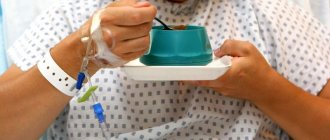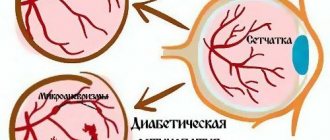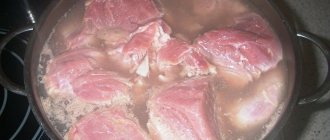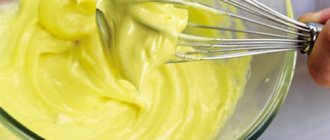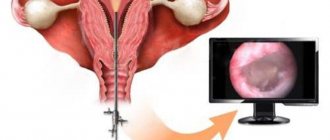Blood tests are the most accurate methods of laboratory diagnosis of the condition of the whole organism. They allow you to assess the functioning of all organs and systems, the likelihood of developing allergies and inflammatory processes. It is extremely important to properly prepare for donating blood for testing. Quite often, after receiving a referral for this test, the patient hears from the doctor a requirement: take a blood test on an empty stomach. We suggest considering which blood tests are necessary to take on an empty stomach, as well as which studies do not require compliance with this condition.
What does it mean?
What does the word “on an empty stomach” mean and why is it used? Taking a closer look at the word, we will see its root “skinny”. The association immediately comes with the word “skinny” - “emaciated”.
It’s not for nothing that they say: “He’s so skinny, he’s probably malnourished.” Excessive thinness is strongly associated with malnutrition. Now we have come to the key point. Skinny - malnourished, starving.
Therefore, what does “on an empty stomach” mean? Being hungry. This is how it works, we take tests hungry.
Diet and nutrition system of the donor - nuances and rules
The entire lifestyle of a person who has devoted himself to helping others should be conducive to maintaining his health at the proper level.
The general requirements for proper nutrition and giving up bad habits work not only two days or a week before the procedure - ideally, they should be followed constantly.
To ensure that donation does not cause harm to either the donor or the recipient, doctors advise stopping drinking alcohol, limiting smoking, periodically taking vitamin complexes, adhering to a sleep and rest schedule, and observing certain intervals between donation procedures. In fact, the listed items are a list of everyday habits of a healthy person.
As for the daily diet, the donor needs to receive a certain amount of proteins, fats, mineral salts, iron every day, and also maintain water balance by consuming an appropriate amount of liquid. It is important to receive the amount of calories needed for the normal functioning of the body - it is calculated depending on weight, age, and lifestyle.
Two days before donation, you need to switch to a diet and adhere to certain rules.
The donor's diet five days before donating blood must be balanced to ensure it has the best composition.
The menu for a donor for five days may be something like the following.
First day:
- Breakfast. Rolled oats porridge with butter, cottage cheese, sweet tea.
- Lunch. Fruits.
- Dinner. Borscht, goulash with potatoes, jelly.
- Afternoon snack. Rosehip infusion with cookies.
- Dinner. Rice porridge, boiled egg.
- Late dinner. Kefir.
Second day:
- Breakfast. Buckwheat porridge with milk. Soft-boiled egg. Cocoa.
- Lunch. Cottage cheese.
- Dinner. Cabbage soup Cutlets with buckwheat. Kissel.
- Afternoon snack. Fruits.
- Dinner. Sausages with stewed cabbage.
- Late dinner. Milk.
The third day:
- Breakfast. Oatmeal on water. Boiled egg. Sweet tea with cookies.
- Lunch. Fruits.
- Dinner. Vegetable soup with barley. Pilaf. Morse.
- Afternoon snack. Fruit jelly with bagels.
- Dinner. Boiled fish with potatoes.
- Late dinner. Baked apple.
Fourth day:
- Breakfast. Semolina porridge with butter. Cookies with jam. Sweet tea.
- Lunch. A fresh vegetable salad.
- Dinner. Ear. Meatballs with vegetables. Morse.
- Afternoon snack. Fruit jelly.
- Dinner. Boiled chicken with stewed cabbage.
- Late dinner. Fruits.
Fifth day:
- Rice porridge milk. Omelette. Cocoa.
- Lunch. Semolina pudding.
- Dinner. Soup with meat. Turkey with vegetables. Compote.
- Afternoon snack. Berry jelly. Cookie.
- Dinner. Beef Stroganoff with mashed potatoes.
- Late dinner. Jam with biscuits.
Foods can be varied as desired, but it is important that there are no prohibited foods in the diet.
After blood loss, the donor needs to closely monitor his well-being. It is not recommended to get up and go about your business right away. You need to sit quietly for a quarter of an hour.
If you suddenly feel dizzy, you should notify your physician. This usually happens if the requirements before delivery are violated. The head may feel dizzy due to pressure changes.
If the donor did not have a good breakfast on the day of the procedure or drank little water, then such unpleasant sensations are possible. And although there is nothing dangerous in them, you need to lie down on a flat surface, raise your legs to an elevated position and remain in this state for some time.
Under no circumstances should you ignore dizziness or drive in this state. The result can be disastrous.
If he feels good, the donor can get up after some time and go have some sweet tea and a bun. The bandage should not be removed for three hours to avoid bruising. It is not recommended to wet it.
If a bruise does appear, you should anoint the area with heparin ointment or troxerutin.
You cannot lift weights or play sports. Smoking is prohibited for two hours.
After donation, you need to eat well. You should also drink more fluids to replace blood loss. You can drink tea, water, fruit drinks, compotes, juice, but not alcohol.
In order for the body to cope with blood loss faster, you must follow the following nutritional rules:
- Eat little and often.
- Increase your caloric intake.
- The last meal in the evening should be at least two hours before going to bed.
- The amount of proteins should be greater than fats and carbohydrates, which are kept to a minimum.
- There are only boiled and baked foods, but not fried ones.
- Any meat is allowed, eat more fruits, herbs, vegetables, and dairy products.
After two days, alcohol is allowed to be consumed, but not more than 100 g per day.
To replenish your blood composition, you need to eat some foods containing iron:
- dairy products;
- meat;
- eggs;
- fish;
- seafood;
- buckwheat;
- apples;
- pomegranate;
- legumes;
- soy;
- corn.
In addition, you need to rest more and walk in the fresh air.
- Beet
- Blueberry
- Alcohol
- Energy
We exclude:
- Fatty foods (mayonnaise, sausages, lard, seeds, halva, pastries, cakes, butter, margarine)
- Spicy (condiments, spices, chili pepper, cayenne, jalapeno, ketchup)
- Smoked
- Roast
- Fast food
- Canned food (olives, olives, pickles)
- Fresh baked goods
- Coffee
- Dairy (cream, milk, cheeses, cottage cheese)
- Eggs
- Nuts
- Citrus
- Chocolate
- Dates
- Bananas
What you can do:
- Fresh vegetables and fruits (except beets, citrus fruits, dates, bananas and blueberries)
- Cereals
- Bread
- Jam
- Pasta
- Rusks or dry cookies without eggs
- Steamed lean fish or poultry
- Chicken or vegetable broth
- Mineral water and regular water
- Tea with sugar
- Homemade compote and fruit juice
Choose high-calorie foods and plenty of them - a piece of pork or beef, a lot of vegetables seasoned with oil. You can treat yourself to something tasty, such as shawarma, and wash it all down with a 100 ml glass of dry red wine. It stimulates hematopoiesis.
Increase your fluid intake by 1.5-2 times in the coming days.
- For the first couple of days, do not allow strong physical and mental stress;
- Leave the bandage on your arm for 4 hours;
- Avoid smoking for the next hour;
- Put the bike and bike aside for 2 hours;
- If you are donating for the first time, after 6 months you need to come and take a blood test for infections and diseases; if you do not do this, the blood will be disposed of;
- If you can avoid coming to work, lie in bed for a couple of hours or take a leisurely walk in the park.
Newcomers are advised to arrive at the transfusion station in the morning. You must begin preparing for the procedure no later than in the evening. Under ideal conditions, donors are advised to follow a special diet for two days before the transfusion. It is necessary to completely avoid foods containing large amounts of animal and vegetable fats.
This category includes lard, fatty meat, and pastry creams. The donor's diet before donating blood should be varied and balanced. You should not eat fried foods, smoked or spicy foods. If possible, also exclude store-bought semi-finished products, ready-made sauces and sausages from the menu. It is not recommended that donors eat eggs and dairy products (including cheeses and butter) the day before donating blood.
The composition and quality of blood depends not only on nutrition, but also on the lifestyle of the donor. A visit to a blood transfusion station should be planned in advance. If you are not feeling well or are in a stressful situation, it is better to abandon your noble idea for a while. You should rest well the day before donation.
Moderate physical activity, quality sleep at night and the absence of emotional turmoil are the main rules for a donor. You should not plan to visit the transfusion station before or after any sports competitions or difficult exams. Blood loss is always stressful for the body.
Immediately after donating blood, the donor is advised not to rush to leave the transfusion station. You should sit quietly in the waiting area for about 15-20 minutes. Smokers are advised to abstain from cigarettes for 1-1.5 hours. During blood donation and immediately after, dizziness and fainting may occur.
This condition is associated with a decrease in hemoglobin levels. If you feel unwell at the station, be sure to report it to the doctors. In cases where discomfort began after leaving the transfusion station, you need to sit on the nearest bench and wait for the condition to improve. The blood donor's diet after donation should be special.
"Hungry stomach" and "fasting stomach"
Did you know that these are two different concepts from a medical point of view? It sounds strange, but it is true.
An empty stomach is the time interval between waking up and having your first breakfast. But no later than 10 am. On an empty stomach - this is from 10 a.m. to noon.
How are these concepts different, other than the time difference? In a fasting state, the body is still able to tolerate the absence of food. And then starvation begins, and the body is forced to make up for the lack of food with its own reserves. If they are not there, the cells of the internal organs are used.
Not every doctor explains to the patient the difference between “on an empty stomach” and “on an empty stomach.”
Authorized Products
Before the procedure you should consume the following products:
- Immediately before the test you need to drink something. You can use water, juice, sweet tea, compote.
- 2-3 hours before delivery, you should eat cereals boiled in water and pasta without oil. Bread, dry goods, crackers, and unsweetened cookies are allowed.
- Lean boiled meat and steamed fish are beneficial.
- Boiled potatoes, other vegetables (raw or steamed).
- Fruits - except those that are prohibited.
After donation, it is recommended to consume the following products to restore the body:
- Liquid. You need to drink it in large quantities. This can be water, herbal teas, compotes, kvass, natural juices, fruit drinks, low-fat milk. Red wine is allowed in an amount of no more than 150 ml per day.
- Dairy products - cottage cheese, kefir, low-fat cheese, sour cream.
- Meat, fish, poultry, beef liver is also useful.
- Seafood, eggs.
- Plant foods that contain a lot of iron are apples, pomegranates, spinach, parsley, buckwheat, lentils.
- Plant products containing a lot of protein are soybeans, beans, corn, peas, lentils.
- Pasta, bread products.
- Vegetable oils.
- Dried fruits, especially prunes.
- Walnuts.
- Vegetables and fruits (it is recommended to consume at least 400 grams per day).
Analyzes
We figured out what “on an empty stomach” means both from the point of view of the Russian language and as medical terminology.
Now let's talk about blood tests. Those who give up before eating.
- General clinical. Each of us had to take it more than once. In this case, blood is taken from a finger. This analysis allows us to identify inflammatory processes, infectious and hematological diseases.
- During a biochemical analysis, blood is taken from a vein. It is this that allows us to assess the functionality of our body. Assess the functioning of the kidneys, pancreas, liver, and determine if there are any malfunctions in these organs.
- Blood sugar test. The first time the blood is taken on an empty stomach, then the patient drinks a glass of sweetened water, and an hour later the blood is taken again. In this way, blood sugar levels are compared.
- Serological. Blood is taken from a vein. This analysis reveals the presence of viral and infectious diseases in the body.
- Hormonal analysis. The name speaks for itself. A deviation from the norm to a greater or lesser extent indicates the presence of diseases in the body.
Temporary contraindications
- Age up to 18 years
- Body weight is less than 55 kg (although they write in different sources the limit is 50 and 54, but a friend with a weight of 54.4 was turned to eat her sides)
- Alcohol consumption – 48 hours
- Blood transfusion – 6 months
- Taking antibiotics – from 2 weeks to 1 month
- Taking painkillers (analgesics and aspirin) – 4 days
- Body surgeries – 6 months
- Tattoo application – 1 year
- Menstruation – 7 days
- Childbirth – 1 year
- Lactation – 3 months
There is a list of situations in which blood donation should be postponed. Rules, preparation, conditions are explained at each blood transfusion station. But people do not always go for a preliminary consultation.
Any healthy person who is over 18 years old and weighs more than 50 kg can become a donor. But even people who meet these parameters can receive a medical exemption for a certain period from the moment of recovery.
Temporary contraindications include the following.
1. Infectious diseases:
- history of malaria (3 years);
- ARVI, sore throat, influenza (1 month);
- typhoid fever (1 year);
- other diseases (6 months).
2. Danger of infection with blood-borne diseases:
- transfusions of blood and its components, surgical interventions, including abortions (6 months);
- acupuncture treatment, tattooing (1 year);
- being on business trips abroad for more than 2 months (6 months);
- stay more than 3 months in countries where malaria is endemic (3 years);
- contacts with persons with hepatitis A (3 months), B and C (1 year).
3. Tooth extraction (10 days).
4. Acute form of diseases or exacerbation of chronic pathologies (1 month).
5. Exacerbation of allergic diseases (2 months).
6. Vaccinations: the rules for donating blood provide for a medical exemption, the duration of which is determined depending on the type of vaccine.
If you are taking any medications, tell your doctor before donating blood. After using antibiotics, a two-week break is required. If you took analgesics or drugs belonging to the salicylates group, then you need to wait 3 days.
If you have carefully read all the contraindications, you can first determine for yourself whether blood donation is indicated for you. It is better to find out the rules (how to donate blood) after reading the full list of contraindications.
If you meet all the requirements, the therapist may allow you to undergo the procedure. Many come to donate blood again. But doing this too often will not work. The break between these procedures should be more than 60 days. Men are allowed to donate blood up to 5 times a year, women - up to 4 times.
True, these restrictions are established for those cases when whole blood is taken from a person. The break between donating plasma and other components is 30 days. Plasmapheresis can be repeated every 2 weeks. The same break is established for plateletpheresis and leukocytapheresis.
Why on an empty stomach?
We have figured out what “on an empty stomach” means. This is the time period from the moment you wake up until the first breakfast, but no later than 10 am.
There are people who cannot tolerate hunger for health reasons. For example, those who have diabetes or gastrointestinal problems. How should they be? In fact, if you eat a tablespoon of oatmeal porridge before the test, it is unlikely that any serious abnormalities in the blood will occur.
However, unfortunately, it will happen. A spoonful of oatmeal porridge helps increase hormones in the blood, changes the concentration of proteins, fats and carbohydrates. Changes blood viscosity.
Moreover, we found out one more point regarding the word “on an empty stomach”. This is not the same as an empty stomach. In a fasting state, the body is able to tolerate hunger, and the destruction of cells of internal organs does not occur. Blood collection in public hospitals occurs very early, at seven or eight o'clock in the morning, and is carried out until 9 o'clock, no later. This is connected precisely with the concepts of “on an empty stomach” and “on an empty stomach”.
Sample menu
There is no clear menu that must be followed. The most important thing is to build your diet on allowed foods and avoid prohibited ones, adhering to your preferences.
An approximate daily diet could be as follows:
- Breakfast : oatmeal on water with added butter, boiled beef, tea.
- Second breakfast : yogurt, fresh fruit.
- Lunch : vegetable soup, boiled meat, stewed beets in sour cream sauce, a glass of compote.
- Afternoon snack : fruit - to taste.
- Dinner : cottage cheese, salad of grated carrots and apples, tea.
- At night : natural yogurt with the addition of dried fruits.
2-3 hours before the test you need to have a light breakfast. After the procedure, you can drink sweet tea to restore your strength. In the first time after the collection, you should especially carefully monitor your diet so that the body recovers.
What foods do you eat on an empty stomach?
Most of the population is accustomed to drinking coffee upon waking up. It is believed that it helps awaken the body. But is it right to drink this drink on an empty stomach? Hardly. It stimulates the body, that's a fact. But it also has a negative effect on the gastrointestinal tract, in particular the stomach and pancreas. By the way, people suffering from gastritis and its derivatives, ulcers and pancreatitis are prohibited from drinking coffee at all.
What to eat in the morning to benefit your body? Try honey on an empty stomach. A teaspoon of honey, diluted in a glass of warm water, will help the body wake up and start the work of the stomach.
So, dissolve a spoonful of honey in a glass of water. It is important that the water is at room temperature. Neither boiling water nor cold water will do any good in our case. Drink honey water in small sips half an hour before meals.
What to have for breakfast? Traditional rolled oats. Don't like oatmeal? Try cooking it with milk, adding sugar and fruit. A simple recipe for those who don't like porridge:
- Take finely ground oatmeal. Cook in boiling, slightly salted water. When the cereal boils, add milk to the pan and let it boil properly. The porridge must be stirred regularly. After our flakes have boiled, add sugar to taste and butter. Pour the porridge into bowls and add pieces of pear, apple and other fruits to it. Apart from citrus fruits, they should not be eaten on an empty stomach. It's summer now, which means you can add your favorite berries to your porridge.
This delicious recipe is very simple. And how many benefits there are from such a breakfast, not counting its taste! Instead of sugar, you can add honey to the porridge. We have already discussed the benefits of honey on an empty stomach above.
Nutrition for pregnant women
The diet of a pregnant woman the day before donating blood for analysis should consist of easy-to-digest, low-fat foods.
Authorized products:
- cereals;
- fruits;
- fresh vegetables;
- reduced fat dairy products;
- low-fat meat: chicken, turkey, veal, rabbit;
- pasta made from durum wheat.
It is necessary to give up pork, sweets, fast food, and fried foods. Meals should be fractional. On the eve of visiting the laboratory, the expectant mother should not drink tea, coffee, juices and sweet drinks; only clean still water is allowed. The dinner before the test should be very light and contain a minimum of calories.
A pregnant woman, like other patients, will have to endure an 8-hour abstinence from food.
Let's summarize
The main purpose of the article is to tell the reader what the word “fasting” means. Show the difference between it and “on an empty stomach”. Let's highlight the main aspects:
- The root of the word “on an empty stomach” is “lean.” What makes people skinny? From malnutrition and starvation.
- From a medical point of view, “on an empty stomach” means that this is the time period from the moment of waking up to the first breakfast. But no more than 10 o'clock in the morning.
- As for the hungry stomach, this period occurs after 10 am, when the body is no longer able to tolerate hunger. It begins to consume its own reserves, and if they are not there, it feeds on the cells of the internal organs. (adsbygoogle = window.adsbygoogle || []).push({});
- Tests are taken on an empty stomach because nutrients obtained from food are absorbed into the blood and change its parameters. The fasting sugar level should be up to 5.5 mmol/l. After eating, blood sugar rises, and this will lead to an inaccurate analysis.
- The difference between the concepts of “on an empty stomach” and “an empty stomach” is that in the first case the body can be hungry for a certain time. In the second, as described above, he begins to eat himself.
Eating on the day of the procedure
Everyone who wants to donate blood must come to the transfusion station and go through a simple registration - fill out a form. The next stage: consultation with a therapist and a rapid blood test (drawn from a finger). What questions should a potential donor answer? Nutrition on the eve of blood donation, recent illnesses, general health - all this affects the quality of the biomaterial.
When visiting a therapist, you should not lie or try to hide any facts about your health. Based on the interview, examination and test results, the doctor makes a conclusion whether the patient can donate blood today. If you have received permission, it’s time to visit the buffet, which is available at any transfusion station.
They know better than anyone what a donor should eat before donating blood. The menu is usually simple: tea with sugar, crackers, crackers and simple cookies. After a snack, the procedure itself is carried out. Typically, whole blood collection takes about 15 minutes, blood components - from 40 to 90 minutes. After the procedure, the patient is given a tight bandage, which must be worn for at least 2 hours.
Donor's diet: fish and vegetables
Many people who go to donate blood for the first time mistakenly think that they cannot eat on the day of the procedure. In fact, it is possible and even necessary to eat food before the procedure, the main thing is to adhere to a certain diet.
On the day of donating blood, it is better to consult a doctor so that he can adjust your diet. On the last day before the procedure, you should eat exclusively boiled foods. Moreover, it is recommended to consume them only before 20:00. The ideal option would be to eat a light lean salad with porridge on water. You can also eat a small piece of boiled meat.
Sleep before the blood donation procedure should be at least 8 hours. If you don't get enough sleep, you will feel fatigued, as well as the risk of fainting during the procedure. In the morning you can drink tea with two tablespoons of sugar and snack on a bun, preferably yesterday's bun. You can supplement this meal with homemade fresh juice and breadcrumbs. It is better not to eat other food products, because the last 10 hours before the procedure are the most critical.
It is also worth noting several recommendations from nutritionists that will help avoid “troubles” during the blood donation procedure:
- Alcohol should be eliminated from your diet 3 days before the procedure. And it doesn’t matter whether it’s strong or not - drinking cognac and beer is prohibited;
- About 4 days before going to the hospital, you should try to stop using various medications. If you cannot do without them, it is better to postpone donating blood until you recover;
- If you are donating blood for the first time, it is better to do it before 12:00. At this time, the risk of dizziness and other symptoms is less;
- You must not smoke for one hour before the procedure.
Some donors who donate blood for the first time often ask the question: “can I eat before donating?” The answer is yes. Donating blood on an empty stomach is strictly not recommended, as this may lead to loss of consciousness during the procedure.
It has been experimentally established that the body tolerates significant blood loss best in the morning. Therefore, for most people, blood is taken for up to 12 hours. Breakfast on the day of the procedure is mandatory. In the morning you can eat any porridge with water, dry cookies, and drink sweet tea.
https://www.youtube.com/watch?v=ytpressru
It is better to go to the blood transfusion station in advance and find out how they donate blood for donation. The rules are the same for everyone. By the way, don’t forget to take your passport with registration with you.
First, the potential donor is asked to fill out a questionnaire where he provides information about his health and lifestyle. After this, he should be examined by a therapist. He can additionally inform you about how blood donation takes place. Rules, preparation and diet are mandatory for everyone.
About 450 ml of biofluid is taken from each donor. Some of it is sent for tests. The duration of the procedure depends on what exactly the person is undergoing. It takes 15 minutes to collect this amount of whole blood. Plasma donation lasts about 30 minutes, platelets – 1.5 hours.
Once the blood draw is completed, the person should rest for a while. To do this, you just need to sit quietly for 15 minutes and drink sweet tea. If you feel unwell or feel dizzy, you should contact the staff. In order to comply with all the rules for donating blood, you must refrain from physical activity on this day. It is advisable to start smoking no earlier than two days after the procedure.
It is advisable not to remove the applied bandage for 3-4 hours. This should prevent bruising. But if it does form, then at the site of its appearance it is recommended to make compresses with heparin ointment. Instead, you can use Troxevasin.
It is also important to eat right: the body must receive all the necessary microelements. After donation, you need to monitor the amount of liquid consumed; you need to drink at least 2 liters of water.
Donor's Memo: How to Prepare Properly?
To prepare for the test, you should carefully study your doctor's instructions. First of all, they concern what you can and cannot eat.
Preparation involves avoiding the following foods:
- Fatty, fried, spicy, smoked,
- Milk, fish, eggs,
- Oil, including vegetable oil,
- Chocolate, cocoa,
- Nuts,
- Dates.
You need to know that these foods cannot be eaten the day before and on the day on which the procedure is scheduled. But the donor is allowed cottage cheese, boiled potatoes, porridge with water, fruits, vegetables, and some boiled meat. The last time doctors allow you to eat food is until 20 pm.
Medical recommendations do not prohibit the donor from having breakfast on the same day. It would be correct to eat cookies, bread without butter, a bun with sweet tea or coffee, and drink tea before the selection.
It is especially necessary to ensure that these requirements are met if donors donate platelets or plasma: dietary violations affect the quality of the components.
There are a number of situations when donors should refrain from donating blood.
These include:
- Night duty,
- Yuesson night,
- Upcoming events that require the mobilization of mental and physical resources - exams, competitions, and so on.
The optimal time of day when it is best to do this is considered to be the first half of the day before 12 o'clock. Doctors have found that you can then donate blood with minimal damage to the body. After noon, the process is more difficult to bear, and only experienced donors withstand it well.
Smoking and blood donation
Blood is a biological material that carries genetic information about the body, as well as traces of almost any of its vital activities, including past and existing diseases. Accordingly, transfusion of material of inadequate quality may not only fail to improve the recipient’s condition, but also add new health problems to existing ones.
Absolute restrictions mean that any item on the list automatically excludes a person from the list of possible donors - his blood, introduced into someone else’s body, can cause him harm. This list includes infectious diseases such as AIDS, syphilis, viral hepatitis, tuberculosis; diseases associated with antisocial behavior - drug addiction, alcoholism;
As for relative restrictions, they allow a person to be a donor if certain conditions are met, most often this is time that must pass, for example, after recovery or travel. For example, a person who has received a transfusion can become a donor only 6 months after the procedure; the same period applies to surgical interventions.
- Syphilis, tuberculosis, AIDS, HIV, hepatitis;
- Malignant tumors, cardiovascular diseases.
I have listed the main diseases, this list is huge, to find out more, call the donor center in your city in advance.
- Age up to 18 years
- Body weight is less than 55 kg (although they write in different sources the limit is 50 and 54, but a friend with a weight of 54.4 was turned to eat her sides)
- Alcohol consumption – 48 hours
- Blood transfusion – 6 months
- Taking antibiotics – from 2 weeks to 1 month
- Taking painkillers (analgesics and aspirin) – 4 days
- Body surgeries – 6 months
- Tattoo application – 1 year
- Menstruation – 7 days
- Childbirth – 1 year
- Lactation – 3 months
The websites of blood donation centers have special indicators of blood availability; current information can be seen here. For example, today in Perm there are not enough of the following groups:
- 1 “-”
- 2 “ ”
- 2 “-”
- 3 “-”
- And 4 “-” stocks are running out.
Even heavy smokers with many years of experience can become donors. True, the last cigarette can be smoked only two hours before donating blood. After the procedure, you can smoke no earlier than an hour later. It is very important to follow this rule. Smoking can cause a decrease in the functional activity of platelets.
If the donor does not comply with the recommended cigarette smoking schedule, the resulting biomaterial may be discarded. If this does not happen, there is a high probability that blood transfusion with low functional platelet activity will be ineffective for the patient. It is for this reason that a nutritional reminder to a donor before donating blood should contain not only diets, but also restrictions on smoking and drinking alcohol.
There are permanent and temporary contraindications for blood donation. Even a strictly observed diet of a blood donor before donation does not guarantee admission to the treatment room for patients suffering from chronic kidney disease. A permanent contraindication to donation is also myopia of more than 6 diopters.
People suffering from diabetes and epilepsy also cannot become donors. You can find out the full list of contraindications for donation by contacting the nearest transfusion station. There they will tell you about proper preparation for the procedure and tell you what a donor’s ideal breakfast should be like before donating blood.
According to the order of the Ministry of Health dated September 21, 2001, there are absolute and relative prohibitions for donation.
Absolute contraindications:
- infectious diseases (AIDS, syphilis, brucellosis, etc.);
- diseases caused by parasites (toxoplasmosis, filariasis, etc.);
- somatic diseases of various organs (kidneys, liver, heart, lungs, thyroid gland, etc.);
- oncology;
- hypertension II-III degree;
- mental illness;
- recent operations on various organs;
- skin diseases (psoriasis, eczema, lupus, dermatitis, etc.);
- organ transplantation.
Temporary contraindications:
- abortions;
- tattoos;
- acupuncture;
- travel to foreign countries (especially to Africa);
- communication with sick people;
- recent illnesses (ARVI, influenza, etc.);
- removal of a tooth;
- allergic rashes;
- VSD;
- pregnancy;
- period of menstruation;
- taking antibiotics, analgesics;
- consumption of alcoholic beverages;
- vaccinations;
- change in test results.
Time limits vary. For example, after an abortion you cannot donate blood for six months, after a sore throat - for a month, after a tooth extraction - for 10 days.
What you can and cannot eat before donating blood
The donor's diet for two days implies a diet that includes fresh, baked or boiled vegetables, water-based cereals, fruits (except forbidden ones), bread, boiled or steamed lean fish and meats, boiled pasta, fruit drinks and compotes. It is not recommended to drink soda, juices, tea and coffee. Among sweets, honey, jam, and jam are allowed, but preference should be given to homemade products.
The list of prohibited products is much more extensive:
- fried, smoked, spicy foods;
- spices;
- any dairy products and eggs;
- beets, blueberries, dates, bananas;
- sausages and sausages;
- sweet store drinks: juices, sodas;
- snacks, chips, seeds, crackers, halva, marinades, ketchup and mayonnaise;
- alcohol, energy drinks.
All of these products can significantly worsen the properties of blood donated for transfusion, especially for milk and everything that contains it: animal fats and proteins in dairy products make the blood serum thicker and complicate the separation of blood into components.
All vegetables must be washed, cut into cubes and boiled in salted broth until tender. Next, the mixture is added to a blender and mixed until pureed. Finely chopped herbs and white bread croutons will add flavor and brightness to the finished dish.
The meat is washed and cut in such a way that a layer about 2 centimeters thick is obtained. Shallow cuts need to be made along the surface of the meat, then it is wrapped in cling film and beaten on a board. The processed beef is rubbed with salt.
Peeled and washed carrots are boiled until tender and finely chopped along with garlic and herbs, after which they are laid out on the meat. The beef is wrapped in a roll, wrapped in cling film and tied with thread. The roll is cooked for about 1.5 hours in boiling water over low heat. After the dish is ready, it is cooled, the film and threads are removed. Beef roll is perfect with a side dish of rice or buckwheat.
The night before, you shouldn’t eat too much right before bed; it’s better to have dinner at least an hour before. In the morning before the procedure, it is better to have breakfast 2-3 hours in advance; porridge with water or boiled pasta without butter, biscuits or simple oatmeal cookies are suitable for this meal. Be sure to drink a portion of sweet tea, mineral water, compote or juice immediately before donating blood. You should not smoke 2 hours before and 2 hours after.
It is especially important to follow all these recommendations before donating platelets or plasma, since consuming prohibited foods later complicates the process of separating blood into components.
Immediately after the manipulations, it is advisable to rest for 10 minutes and drink sweet tea and snack on a couple of biscuits.
In order to quickly recover after the donation procedure, doctors advise consuming the following products:
- beef liver, meat, poultry, fish;
- dairy products;
- seafood;
- eggs;
- pasta, bread;
- dried fruits;
- walnuts;
- vegetables and fruits.
All these recommendations are important for the donor and his health, as well as for maintaining the quality of the blood at a level that is suitable for its introduction to another person. Compliance with nutritional rules, first of all, will help the donor himself to normalize his well-being before and after the procedure of blood sampling, which is stressful for the body, and in addition will make the biomaterial for transfusion as safe as possible.
More fresh and relevant information about health on our Telegram channel. Subscribe: https://t.me/foodandhealthru
Blood collection procedure
When donating blood, a person sits in a reclining position on a special chair. Blood sampling is carried out using disposable sterile instruments. During the procedure, the donor clenches and unclenches his fist several times. The bandage applied at the end of the donation can be removed after 4 hours. The most comfortable conditions have been created for donors.
There are several options for donating blood. The first scheme is whole blood donation. The second is a separate donation of plasma or platelets. Special equipment pumps blood out of one arm, separates it, takes the required component, and returns the rest to the donor through a vein in the other arm.
Donating 450 ml of whole blood takes about 15 minutes. To ensure maximum sterility, modern equipment is used to draw blood, which allows you to automatically separate the blood into the necessary components - plasma, platelets, red blood cells. It is in this form that they will be infused into patients in need. Donating blood for plasma takes about half an hour, and in the case of platelets - up to 1.5 hours.
Along with this, the donor can receive monetary compensation for recuperation or a full meal.
Being a donor is not easy; it requires a person to make some restrictions in their lifestyle. The main thing is that he must lead a healthy lifestyle: avoid dubious connections and drugs, do not abuse alcohol and do not get tattoos. He must monitor his health by systematically taking blood tests. You cannot donate blood often; men can do this up to 5 times a year, and women up to 4. After all, the interval between blood donations is at least 60 days. If you donated plasma, it is reduced to 14 days. In order for the body to have time to recover after 5 regular blood donations, you need to take a 3-month break.
To become a donor, you need to understand some rules for donating blood.
The donor must be physically and mentally healthy, this will help the other get back on his feet.
How to restore blood loss?
Below are general recommendations for restoring blood as quickly as possible after donating it.
- During the first 15 minutes after blood or plasma collection, you must remain in a sitting position. It is advisable to eat a hearty meal immediately after the end of the period;
- It is well known that alcohol can help restore blood. We are talking about a small dose of red wine (100 grams of Cahors) - you can drink it immediately after the donation procedure;
- During the day, drink as much liquid as possible - both regular clean and mineral water, and fresh juices, compotes, rosehip decoctions;
- For four to five days, it is advisable to eat properly and healthily, including more protein foods and iron-containing dishes in your diet. If the donor does not have problems with excess weight, you can increase the calorie content of the daily diet through vegetables, fruits, berries, steamed products, boiling and baking;
- When donating blood for individual components (for example, platelets), in the case of using a standard method of fluid collection, citrates are used - these substances intensively remove calcium. It must be replenished by taking Calcemin, Calcium D3 or other drugs in this spectrum. Along the way, it is necessary to saturate the diet with dairy and fermented milk products rich in the above-mentioned microelement;
- It is rational to use hematogen as an adjuvant for 3-4 days after donating blood.

